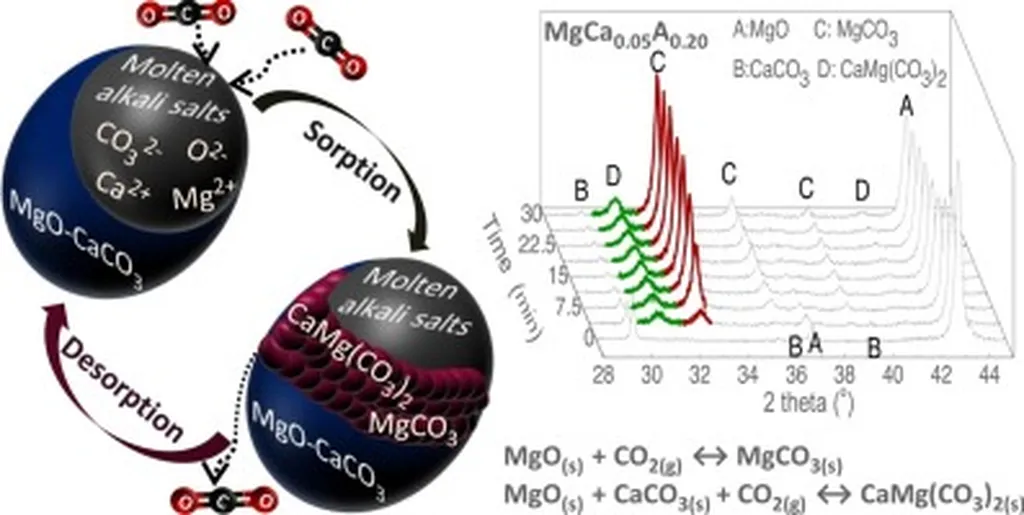In the quest to mitigate carbon emissions, researchers have been exploring various strategies to enhance the efficiency of carbon capture technologies. A recent study published in the journal *Carbon Capture Science and Technology* offers promising insights into improving intermediate-temperature CO2 capture using magnesium oxide (MgO) adsorbents. The research, led by Yaozu Wang from Tsinghua University, sheds light on the optimization and deactivation mechanisms of molten salt-promoted MgO, potentially paving the way for more effective carbon capture solutions in the energy sector.
The study focuses on the incorporation of nitrate molten salts to boost the CO2 uptake of MgO at intermediate temperatures ranging from 200 to 400 °C. While previous research has shown promise, the slow carbonation kinetics and poor stability of these materials have posed significant challenges to their industrial application. Yaozu Wang and his team discovered that adding sodium carbonate (Na2CO3) to the mix could dramatically improve the sorption kinetics of MgO in a 15% CO2 atmosphere.
“By optimizing the promoter loading and the ratio of Na2CO3 to NaNO3, we achieved a CO2 capacity of 19.9 mmol/g at 275 °C,” Wang explained. This breakthrough was made possible by a 15 mol% total promoter loading with a Na2CO3/NaNO3 ratio of 1:4. The mechanistic analysis revealed that Na2CO3 promotes the formation of Na2Mg(CO3)2, which acts as an effective nucleation site for MgCO3 formation, accelerating the carbonation rate by a factor of eight.
However, the researchers also identified a critical challenge. Hard X-ray photoelectron spectroscopy (HAXPES) revealed that an increased Na/Mg ratio caused subsurface migration and aggregation of molten salts. This led to a permanent rise in local salt concentrations, negatively affecting CO2 capture performance. “Understanding these degradation mechanisms is crucial for enhancing the stability of nitrate-enhanced MgO,” Wang noted.
The findings offer valuable insights into the structural degradation mechanisms and provide guidance for improving the stability of nitrate-enhanced MgO. This research could significantly impact the energy sector by enhancing the efficiency and stability of intermediate-temperature CO2 capture technologies. As the world continues to seek sustainable energy solutions, advancements in carbon capture technologies will play a pivotal role in reducing greenhouse gas emissions and mitigating climate change.
The study, published in *Carbon Capture Science and Technology*, highlights the importance of ongoing research in this field. By addressing the challenges of slow carbonation kinetics and poor stability, scientists are inching closer to developing more effective and commercially viable carbon capture technologies. The work of Yaozu Wang and his team at Tsinghua University represents a significant step forward in this endeavor, offering hope for a cleaner and more sustainable energy future.

